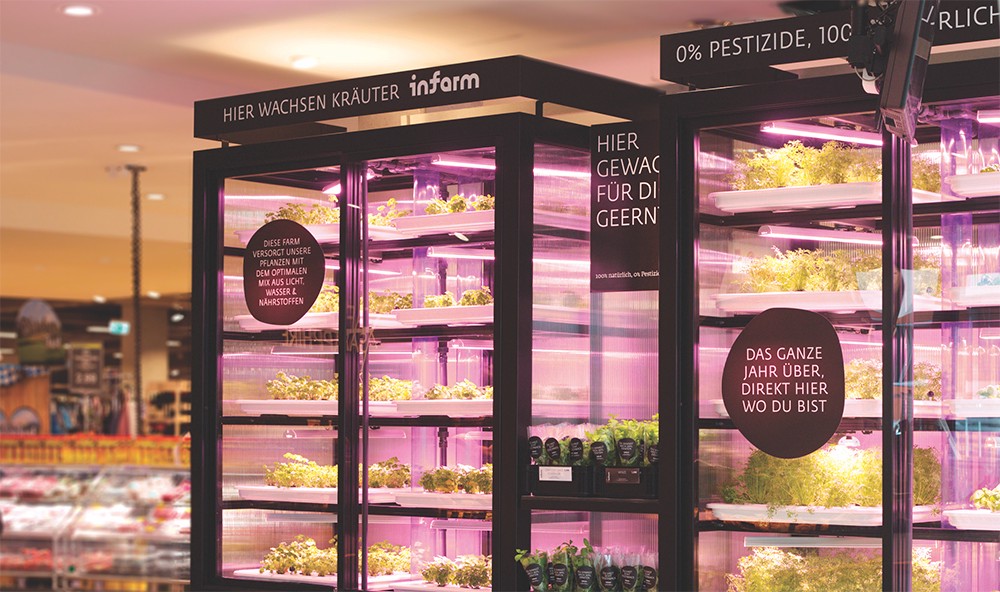Vertical farming startup InFarm announced that it has raised US$170 million in the first close of a Series C funding round expected to reach $200 million. Led by LGT Lightstone, the first round included participation by investors Hanaco, Bonnier, Haniel, and Latitude, and was supported by existing Infarm investors Atomico, TriplePoint Capital, Mons Capital and Astanor Ventures.
With a mix of equity and debt financing, the fresh capital infusion brings Infarm's total funding to date to more than $300 million, underscoring consumer and retailer appetite for Infarm's innovative approach to fresh, sustainable and local food production in the wake of this year's pandemic. By 2025, Infarm's farming network is expected to reach more than 5,000,000 square feet to become the largest distributed farming network in the world as it builds towards helping cities become self-sufficient in their food production.

(Image: Infarm)
The investment will be used to deepen the regional and local penetration of Infarm's global farming network and complete development of Infarm's new generation of vertical cloud-connected farms, capable of generating the crop-equivalent of acres of farmland and amplifying the diversity of produce currently available through vertical farming. An integration of advanced engineering, software and farming technology, and these farms will save labor, land, water, energy, and food-miles, while contributing to a more sustainable food system.
In the past 12 months alone, Infarm has formed new partnerships with the world's largest retailers, including Albert Heijn (Netherlands), Aldi Süd (Germany), COOP/Irma (Denmark), Empire Company Ltd (Sobeys, Safeway, Thrifty Foods - Canada), Kinokuniya (Japan), Kroger (United States), Marks & Spencer (United Kingdom) and Selfridges (United Kingdom), driving market expansion beyond Germany, France, Luxembourg and Switzerland to the United Kingdom, the United States, Canada, Denmark, the Netherlands and Japan.
With operations across 10 countries and 30 cities worldwide, Infarm harvests 500,000+ plants monthly and growing while using 99.5% less space than soil-based agriculture, 95% less water, 90% less transport and zero chemical pesticides. Today, 90% of electricity use throughout the Infarm network is from renewable energy and the company has set a target to reach zero emission food production next year.












